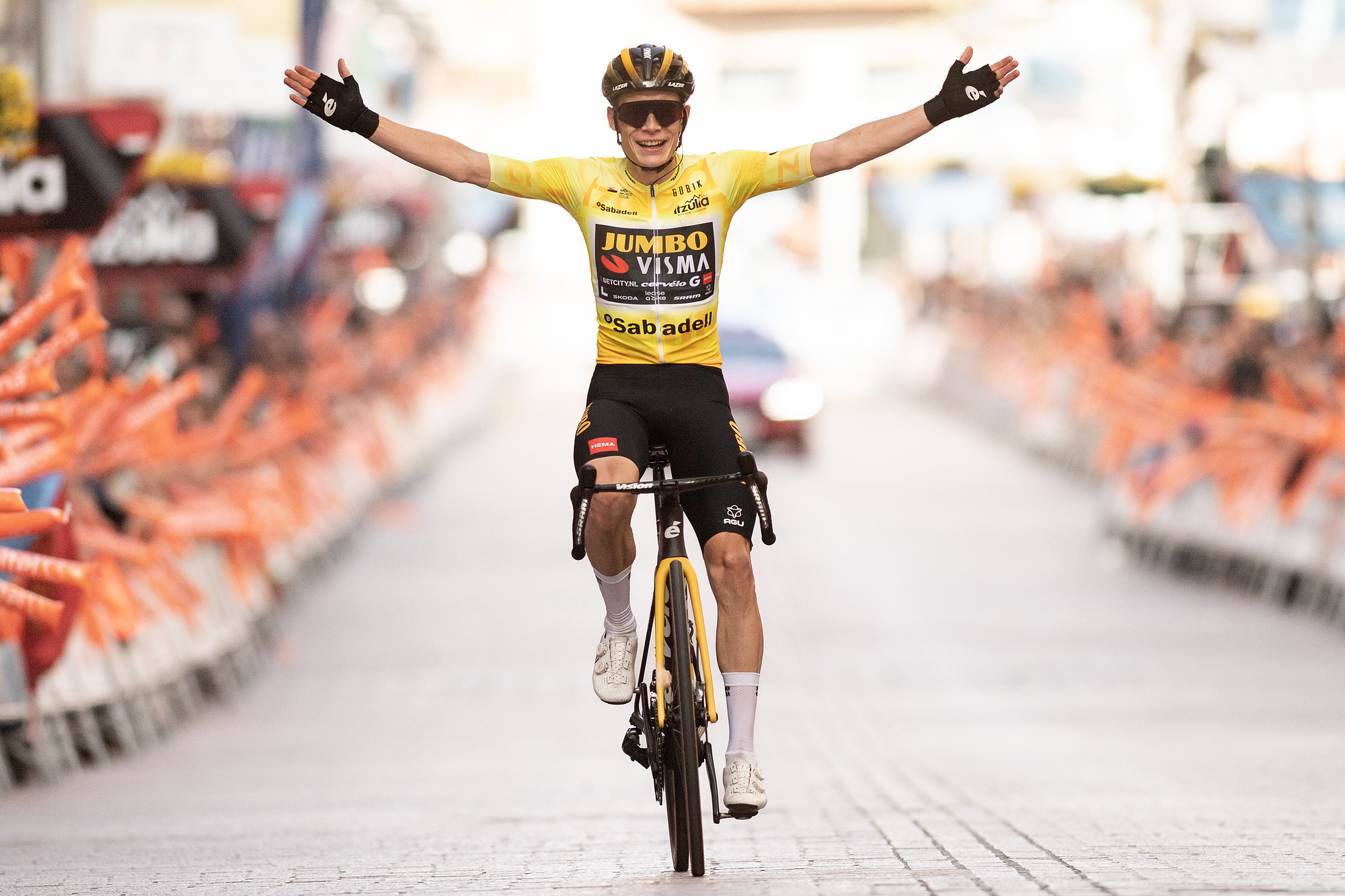
It was the only time all week at the Itzulia Basque Country that Jonas Vingegaard seemed unsure; he had been caught off guard. “Jonas,” began the question, “do you have a weakness?”
It was a forthright, even cheeky, question. Vingegaard, sitting in his chair, shuffled uncomfortably. He laughed and stumbled over his response. “Erm, well,” he mumbled. “I mean, erm, my sprint is not the best of course.” 40 minutes earlier, he had just won a sprint against Mikel Landa to win his second successive stage of the race.
The question from the journalist was well-founded, for while Vingegaard is the reigning Tour de France champion, never before had we seen him ride like how he he did at northern Spain. Which is to say, clinical - consistently.
“I think I am in a better place, my shape I think is better now,” he said when asked to compare his form to 12 months ago. “It’s a long time until the Tour de France. You can still have a peak now, then have a rest period, and then build towards the Tour. At least for me, I don’t think - or maybe I can - I can be in Tour shape twice a year.” He didn’t demonstrate yellow jersey-winning condition in the Basque Country, but he exhibited yellow jersey-winning conviction.
Winning the Tour was not a massive surprise - he was second in 2021 - but before he did so in such convincing fashion, he had only ever won seven bike races, and never against the elite on the grandest of stages. Heck, he didn’t even have a team built around him - and still doesn’t. Now, three months out from the defence of his title, he has claimed nine wins across 17 race days this season (three stages and the GC at O Gran Camiño, the TTT at Paris-Nice, and three stages and the GC at Itzulia).
For all the justified talk of Tadej Pogačar’s incredible run of form (that included beating Vingegaard at Paris-Nice), the man who beat the Slovenian to the Tour last year is progressing along at a rate he’s never done before.
In the Basque Country, Vingegaard existed in a league of his own. The stats back it up, too: not since Iban Mayo in 2003 has a rider won three stages and the overall in this most unpredictable and tactical of races. As Remco Evenepoel found out last year, and Vingegaard’s teammate Primož Roglič the year before, controlling Itzulia is a hard feat.
Vingegaard did it with ease. “It is definitely one of my favourites, I really enjoy being here,” he said after stage three, the first of his hat-trick. That day he tamed the 32% slopes of Hika; the day after he attacked up and over the final climb with Landa, and increased his lead.
Identifying a fault was difficult. “A weakness is hard to tell,” he admitted, at pains to not sound overconfident, but clearly professing the confidence he has in himself. “Something I always want to work on is my sprint; it’s where I think I can improve the most. In general I always want to improve, to be better, to stay on the top.”

He had spoken candidly about the difficulties of winning this race, but he demonstrated a canny knack of knowhow and strategy. “It’s a good way of working on your tactics,” he said about the race. “It’s often a tactical game here: it’s also about legs, but the better you are tactically, the better you are.” The race was his chessboard, and he was just moving pieces around.
This is significant, because while Pogačar had better condition at Paris-Nice, it was a tactical master plan that set up Vingegaard’s iconic win on stage 11 of the Tour last year. Strategy is becoming his weapon.
Ahead of the final stage, arguably cycling’s best recurrent stage, he had a lead of 13 seconds to Landa. When the leading trio from the break included Esteban Chaves (1-57 back on GC), and when their lead pushed out to over 90 seconds with just 60km racing to go, alarm bells were ringing. This stage has a history of dethroning the champion-elect.
“I expect total chaos - it’s always like this on the last day of Basque Country,” Vingegaard had predicted. “Three years I have done this race, and it’s always everyone against the leader’s jersey on the last day.”
He had spoken about the possibility of working with other teams, and stated that “the plan is not to attack - the plan is to defend”. But he just couldn’t help himself: on the climb of the Arrate, he attacked and within moments he had built an unassailable lead. “I knew I had to attack there because the last climb was not tough enough to make the difference,” he said afterwards. “I had good legs, so I took a chance. When I noticed no one could follow me, I decided to continue.”
You could temper his victory by pointing out that there was no Pogačar, Evenepoel or his teammate Roglič on the startlist. But there was Landa, Enric Mas and David Gaudu. He brushed them aside assuredly. No rider has won a WorldTour stage race this season by the same margin - 1-12 - as he did at Itzulia. He was ruthless, clinical and remorseless.
Is he better than ever? “I had a good winter, no setbacks, no injuries or sickness, and obviously I have been to altitude camp which helps,” he answered. “Of course I am very happy to have won eight races at this part of the year. It’s nice. Hopefully it keeps going like this.”







